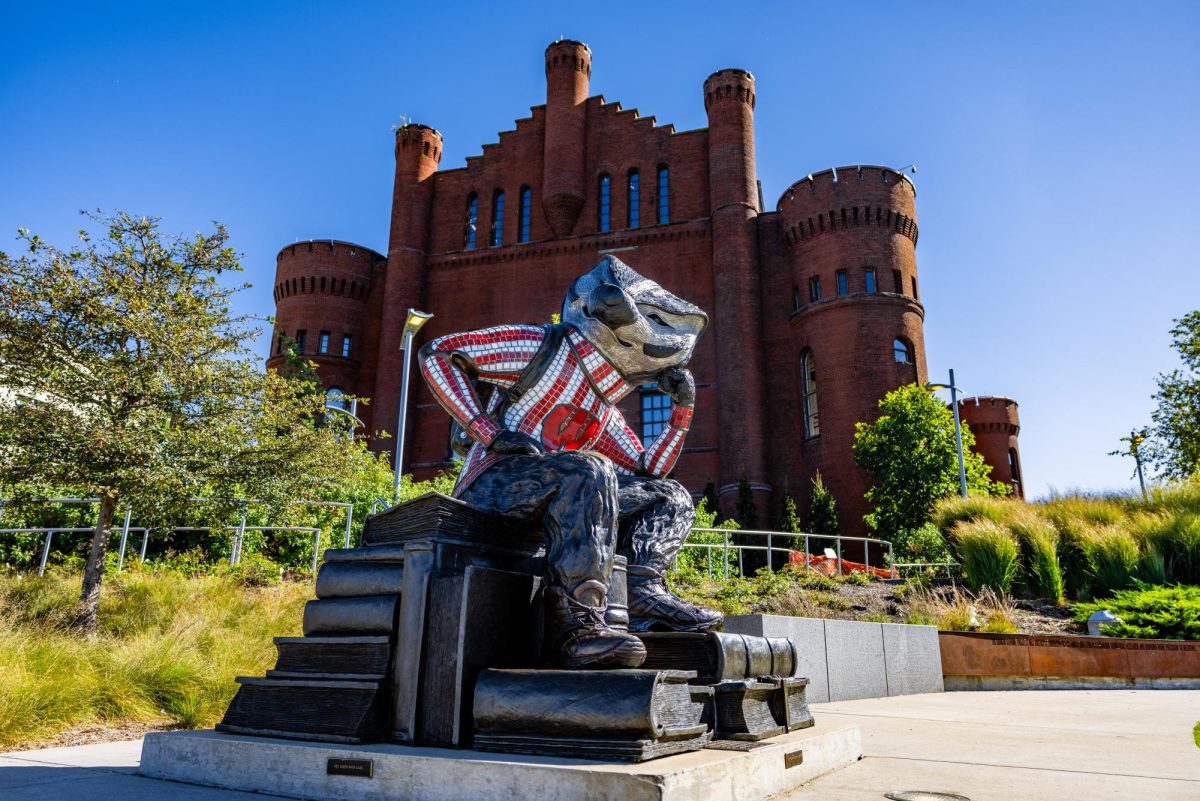Latine Heritage Month at the University of Wisconsin will run from Sept. 15 to Oct. 15 and offers a moment to reflect on and celebrate the cultural contributions of Latinx communities, according to the UW Student Affairs website.
Since 1988, the annual observance has provided a space for students, staff and faculty to honor their heritage and acknowledge the significant impact of Hispanic individuals, according to the UW Student Affairs website.
Over the last five years, Hispanic students have accounted for 79% of the 4% overall increase in college degree attainment, yet they continue to remain underrepresented in university settings, according to Excelencia in Education.
In recent years, UW has also witnessed a notable increase in Latinx students pursuing higher education, professor of Chicanx studies Theresa Delgadillo said.
“In Wisconsin, we have seen an increase in Latinx students seeking higher education, seeking a four-year education at UW–Madison and in particular, being drawn to the Chicano, Latino Studies program as a place where they can explore interdisciplinary knowledge,” Delgadillo said.
Celebrating events like Latine Heritage Month not only highlights these achievements but also underscores the ongoing need for increased support and representation within academic institutions, Delgadillo said.
The establishment of the Chicanx & Latinx Studies major last year also marks a significant milestone for Wisconsin, Delgadillo said. This is the first time there is a Latino studies major in the UW System, and this development reflects the broader trend of increasing recognition and support for Latinx students and their academic needs, she said.
Despite these advances, Latinx students at UW continue to navigate the challenges of being a minority on campus, Delgadillo said.
“We’re [the Latinx community] still small, still a minority on campus, but we have seen a change and we’re growing our program,” Delgadillo said. “Latine Heritage Month is really dedicated to providing an opportunity for students of Latinx heritage to [be] themselves, be able to deepen their understanding of the variety included in Latinx cultures, and to share that with the rest of the campus community.”
This year, the theme of Latina Heritage Month is “Illuminating Our Voices,” which aims to amplify the diversity within Latine cultures and allows individuals to share their personal experiences, according to the Latine Heritage Month Student Affairs website.
This celebration is not just about recognition, it’s about education and dialogue, Delgadillo said. The month-long events offer students a chance to help the broader campus community understand what their art and culture means to them, Delgadillo said.
The events of Latine Heritage Month are driven by student leadership, reflecting the active involvement of Latinx students in shaping their cultural narrative, Latine Cultural Center program coordinator Natalie Ergas said.
Ergas said she hopes to emphasize the importance of students who drive this experience.
“Here at UW, the Heritage Month is planned and facilitated by students,” Ergas said. “It really is a chance for Latina students to celebrate their heritage, [and] to celebrate the steps they’re taking in terms of higher education and career paths.”
This year’s opening event, the March Up Bascom, allows students to choose flags representing their heritage and celebrate with music and games, according to UW News.
This year’s celebration also includes the Beats Without Borders event, which explores Latin American music and its evolution, according to the Latine Cultural Center Instagram. Partnering with the UW Mills Music Library, this event aims to provide a rich, interactive experience, combining music history with contemporary rhythms, Ergas said.
“I’m really excited, because it’ll be a fun way to build knowledge but also get some new songs for your playlist,” Ergas said.
Beats Without Borders, along with other events, is designed to illuminate Latine identities across various art forms, including music, dance and theater, according to their webpage.
As the month progresses, there are ample opportunities for students and faculty to get involved and contribute to the ongoing dialogue around Latinx issues and culture, Ergas said. The planning for Latine Heritage Month begins as early as the winter semester, with students invited to help shape the events and themes, Ergas said.
The Latinx Talk project, an online space for Latinx research and writing, has garnered international attention, with readers spanning across multiple countries, co-founder Delgadillo said.
“We have readers internationally, in 14 countries,” Delgadillo said. “There is recognition that there is a need for more information … about Latina and Latino populations and the issues that face them in the US.”
This platform not only provides insight into Latinx issues but also actively involves students in its development, offering them opportunities to contribute as editors and writers, Delgadillo said. Students can, and should, reach out on their website and send work samples if they are interested in working with the platform, she said.
Latine Heritage Month at UW is more than a series of events, it is also a reflection of the university’s and students’ commitment to celebrating and understanding the diverse experiences of its Latinx community, both Delgadillo and Ergas said.



